




WINTER 2025
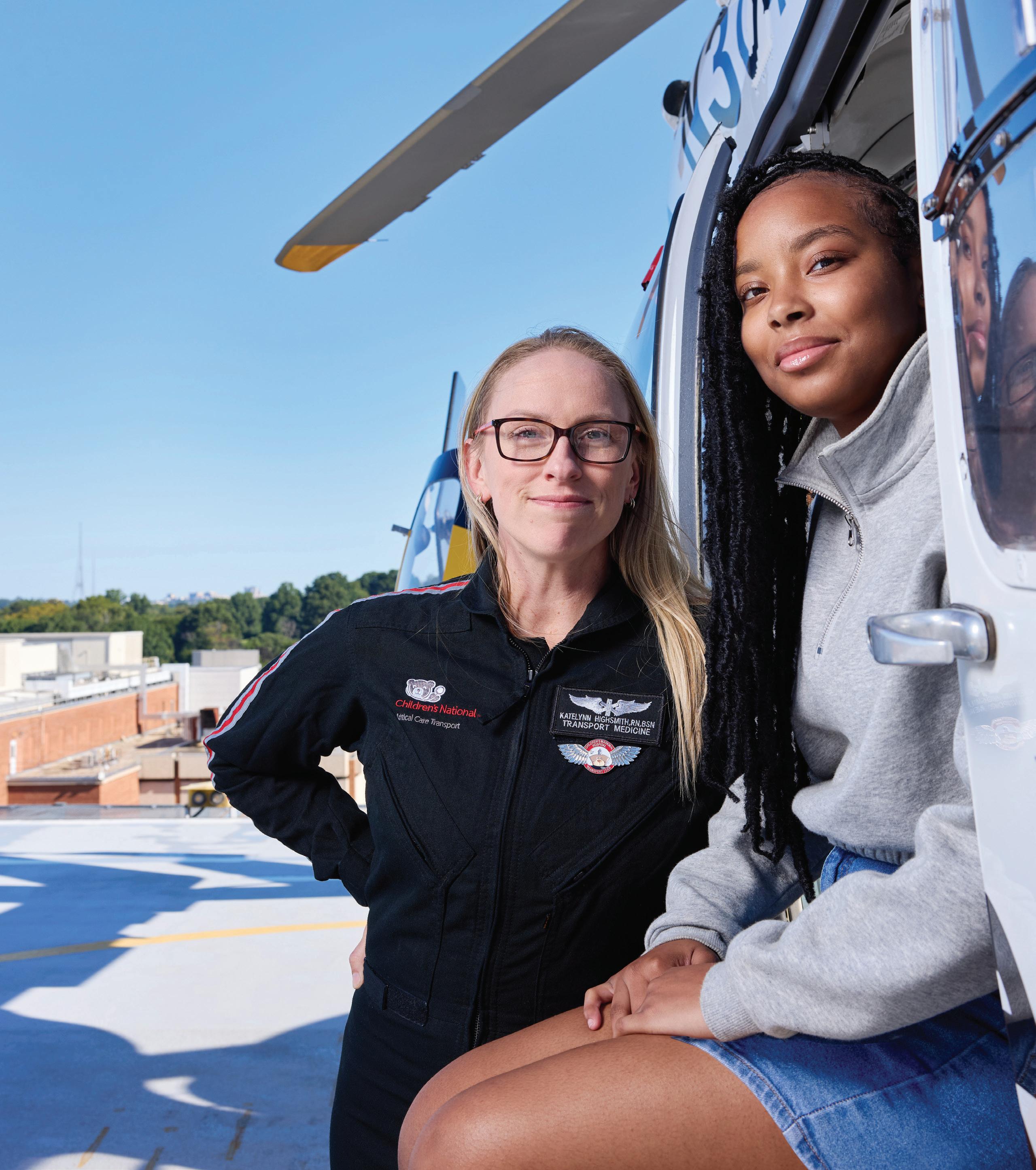
SKYBEAR DELIVERS WHEN EVERY MINUTE MATTERS
How Our Transport Medicine Team Saves Lives
The Clark Foundation Builds Healthier Futures Recognizing Extraordinary Leaders
The transport team saved my baby’s life. I will never forget their professionalism and precise teamwork.”
―
Darrell, Destyni’s Dad
The journey began with a 105-degree fever. A. James “Jim” and Alice Clark rushed their 3-year-old son Brad to Children’s National. Doctors treated him for spinal meningitis, saving his life. That day in 1955, the care team had no way of knowing that the Clarks would go on to influence almost every aspect of Children’s National, improve children’s health across the capital region and set the stage for a pediatric research revolution.
If anyone envisioned that future,
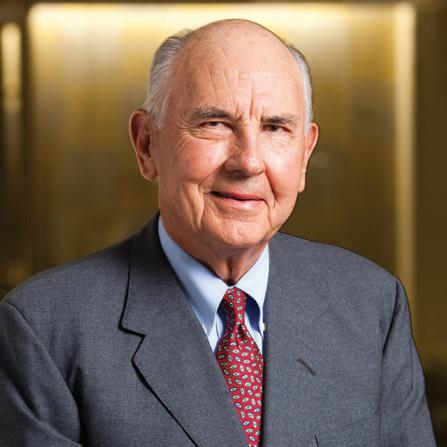
it was Jim Clark. He became a builder of historic proportions, nicknamed “the king of concrete.” His company ― known as Clark Construction since 1996 ― built large sections of contemporary Washington, D.C. Its achievements include 28 Metro stations, the World Bank headquarters and Nationals Park. One project held special meaning for Jim and Alice: their city’s children’s hospital.
Jim oversaw construction of the modern-day medical campus on Michigan Avenue. In 1977,

President Jimmy Carter dedicated it, saying he believed it would “set a standard for the whole country.”
The president’s prediction came true, thanks in part to the Clark family’s visionary philanthropy.
“Our family realized how fortunate we were to have this wonderful place right here in our backyard,” Jim’s daughter, Courtney Clark Pastrick, says.
C ourtney and her two brothers grew up in Bethesda. “My parents believed in building relationships of trust.”

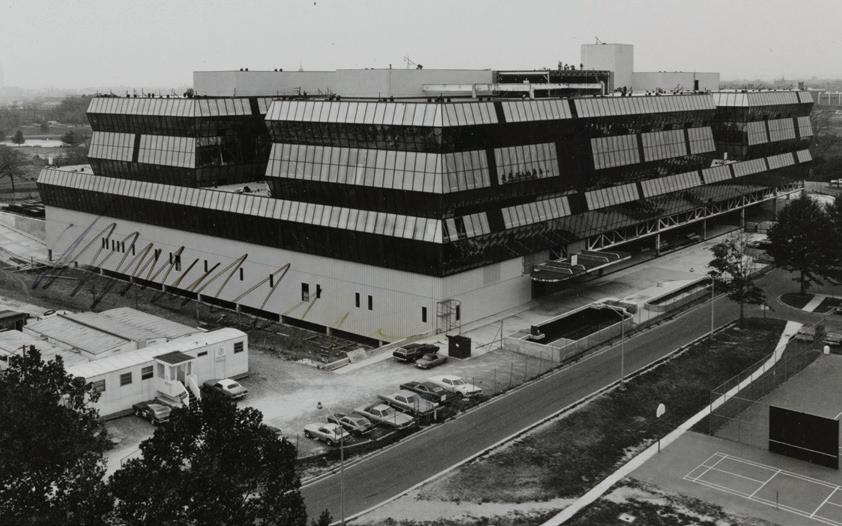
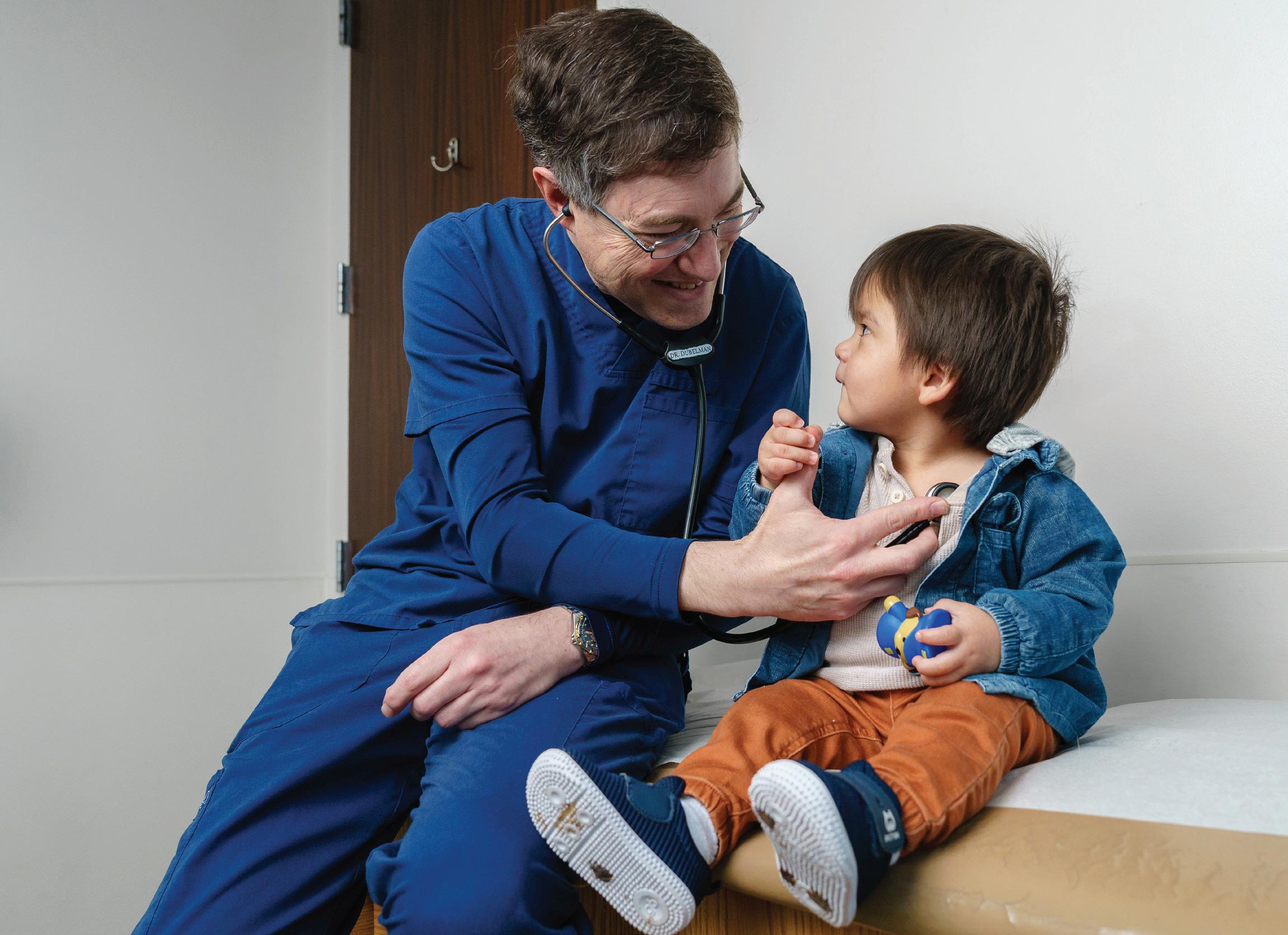

Our family realized how fortunate we were to have this wonderful place right here in our backyard.”
― Courtney Clark Pastrick
Dr.
The Clarks built their philanthropic support of Children’s National on partnership and innovation. The A. James & Alice B. Clark Foundation’s first transformational gift in 1999 reflected an ambitious vision for a new era of medicine. It created the A. James Clark Distinguished Professorship in Molecular Genetics, one of the hospital’s first endowed chairs. The investment came just in time to harness the scientific revolution unleashed by the first map of the human genome.
“For 25 years, the Clark Distinguished Professorship

has been a driving force behind our mission to transform children’s health through molecular discoveries,” says Nathan Kuppermann, MD, MPH, executive vice president, chief academic officer, director of the Children’s National Research Institute and Fight For Children Distinguished Chair of Academic Medicine.
With this endowed position, the hospital will recruit a new leader for its Center for Precision Medicine and Genomics Research, formerly the Center for Genetic Medicine Research. “Our next Clark Distinguished Professor will lead us into a new era of care,” Dr. Kuppermann says. “Precise, personalized treatments will give every child the best chance at a healthy future.”
When Logan was 9, he almost died from cardiac arrest on Christmas Day. He struggled with learning challenges and behavioral problems, including disruption in school. Everything changed, however, when Logan transferred to Children’s National for intensive care following his health crisis. Seth Berger, MD, PhD, a medical geneticist, looked into Logan’s case.
The result was night and day. I am so grateful to have Dr. Berger and Dr. Sherwin in our lives. I am a believer in the future of genetic medicine. We are beyond lucky.”
Dr. Berger uses sophisticated biochemical, genomic and artificial intelligence tools, including RNA sequencing, to solve medical puzzles. The Clark Foundation’s investments helped build this platform. Fortunately for Logan, Dr. Berger discovered a rare and harmful mutation in the SLC6A8 gene, which helps the body’s cells store and use energy through a substance called creatine. Logan’s rare metabolic condition is one of only 300 known cases in medical history. A treatment existed.
― Melissa, Logan’s mom
Logan began taking a mixture of creatine, arginine and glycine under the care of

Dr. Berger and Elizabeth Sherwin, MD, a cardiologist and expert in heart rhythm disorders. His health stabilized, and he finally could enjoy school activities. “The result was night and day,” Melissa, Logan’s mom, says. “I am so grateful to have Dr. Berger and Dr. Sherwin in our lives. I am a believer in the future of genetic medicine. We are beyond lucky.”
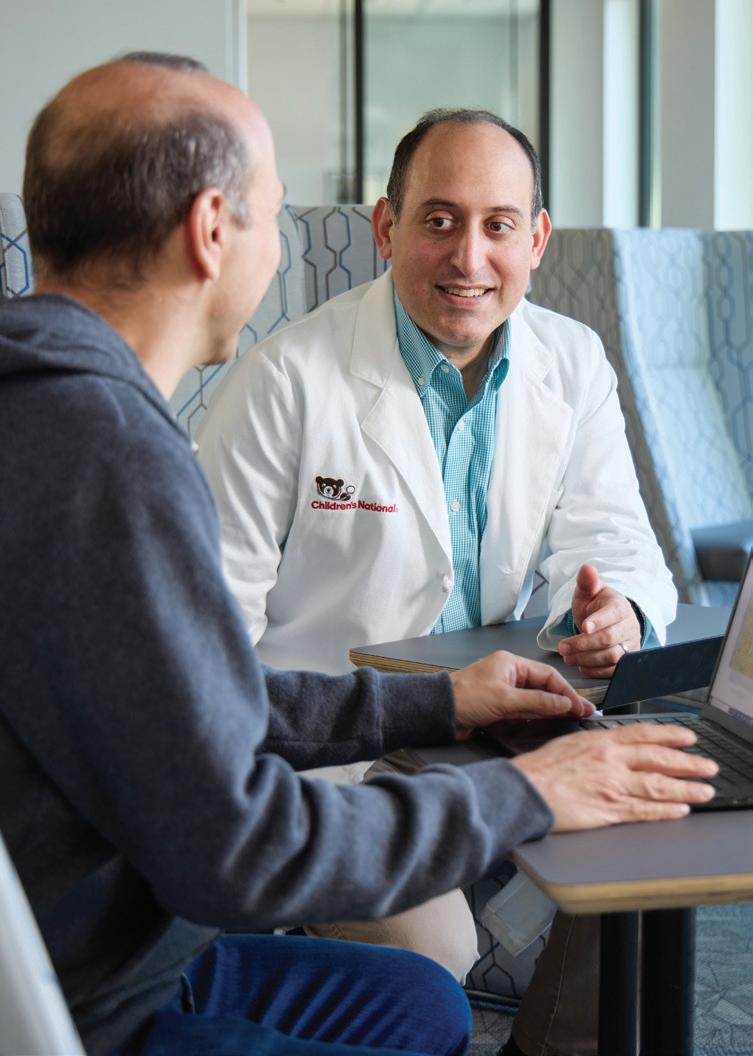
Strategic bets with long-term payoffs are a hallmark of the Clark family’s giving. “The Clark Foundation often thinks about philanthropy as risk capital,” Joe Del Guercio, the president and CEO, says. “We want to make investments in cutting-edge research and new ideas with the potential for maximum impact.” The foundation decided
to make those investments up front, rather than over decades, to maximize impact. It closes its doors on the last day of 2025 with an indelible legacy: $1.4 billion invested in more than 400 organizations, with a strong focus on strengthening people and families in the Washington, D.C., area. It invested in the University of Maryland, Jim’s alma mater and home to the Clark School of Engineering. After his passing in 2015, the university honored him by building A. James Clark Hall.
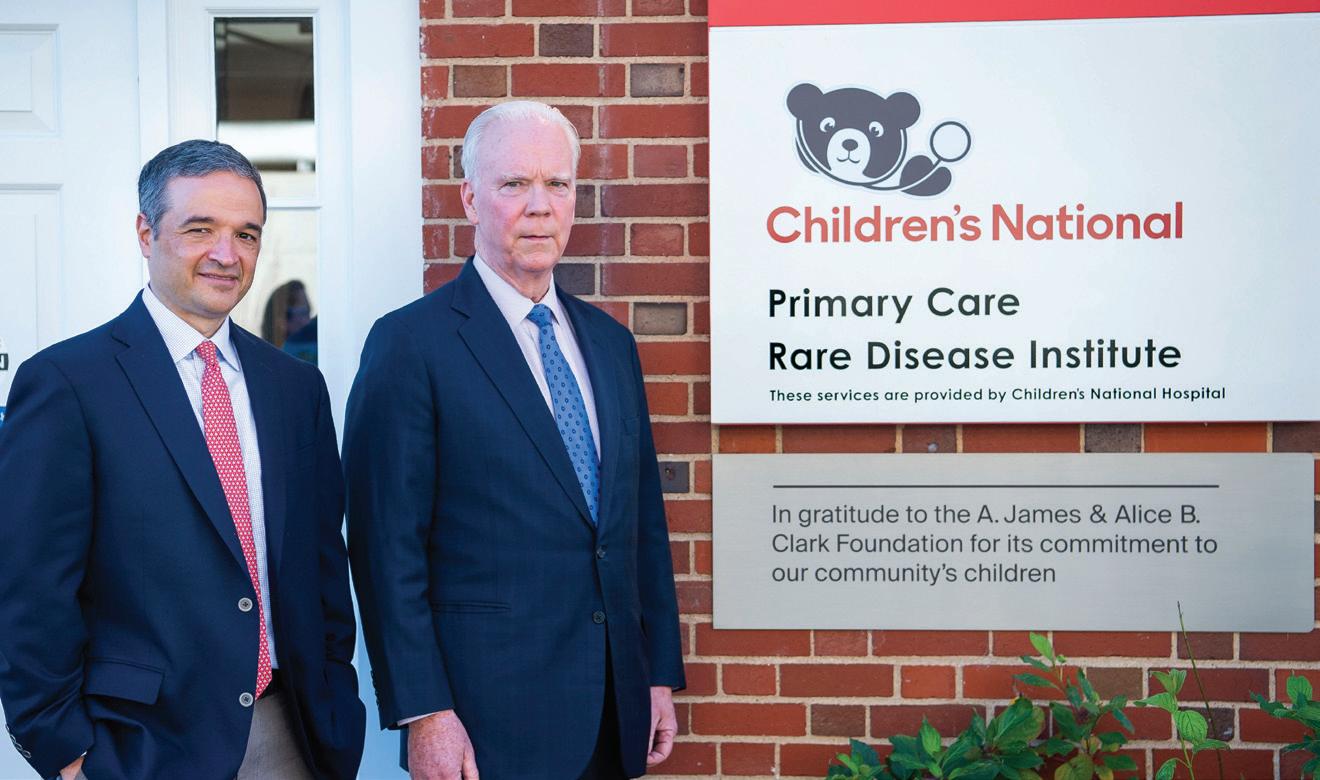

CLARK PARENT & CHILD NETWORK | 2020-2025
In 2020, the Clark Foundation sought to determine how it could enhance the health and well-being of children and families across the capital region through early interventions. It gathered a broad range of stakeholders ― including hospital leaders, community providers and nonprofit organizations ― to envision brighter futures. This conversation led to the creation of the Clark Parent & Child Network through the foundation’s $36 million philanthropic commitment.
This network orchestrates the work of more than a dozen teams at Children’s National and partner organizations citywide. It aims to create the best possible health outcomes for expectant women, infants and young children. A pioneering, comprehensive system of screenings, community outreach, research and wraparound services sets a new standard and elevates community health.
62,000 patients received care
23,000 DC Mother-Baby Wellness patient encounters for mental health and other support
8,000 screenings for mood and anxiety disorders in the NICU and Emergency Department
6,000 patients received services through our Whole Bear Care program, integrating mental health into primary care visits
In 2022, the Clark Foundation made an additional commitment to ensure that the network’s efforts endure. It endowed two new chairs at Children’s National. Lee Savio Beers, MD, who guides the network’s infant and toddler efforts, became the A. James & Alice B. Clark Distinguished Professor of Early Childhood Intervention and Advocacy.
“Early childhood is so important because 90% of brain development is in the first five years of life,” Dr. Beers says. “Being able to intervene and support a family in those early years really has a significant impact.”

Catherine Limperopoulos, PhD, who leads the network’s prenatal-neonatal care, became the A. James & Alice B. Clark Distinguished Professor of Maternal-Infant Health. The foundation’s investments drive pioneering research by Dr. Limperopoulos and her team into how maternal stress impacts a child’s developing brain, even before birth. “Our research shows how healthy moms equal healthy babies,” Dr. Limperopoulos says.
As the Clark Foundation sunsets this year, it made a final, powerful gift to Children’s National. A $5 million commitment will transform cardiac research and care by helping establish a new Children’s National Heart Research Institute.
The gift reflects a commitment from multiple generations of the Clark family. Just as Jim’s relationship with the hospital began with an ill son, the new commitment started with Chip, Jim’s greatgrandson and Courtney’s grandson.
Doctors discovered that Chip had aortic valve stenosis, requiring a balloon procedure shortly after he was born. “Children’s National gave us hope and exceptional care during a difficult time,” says Chip’s father, Clark Pastrick. “While Chip’s journey isn’t over, this gift ensures the best care will always be there for him and others like him.”
This investment creates a fourth Clark Professorship at Children’s National. Wayne J. Franklin, MD, MBA, senior vice president of the Children’s National Heart and
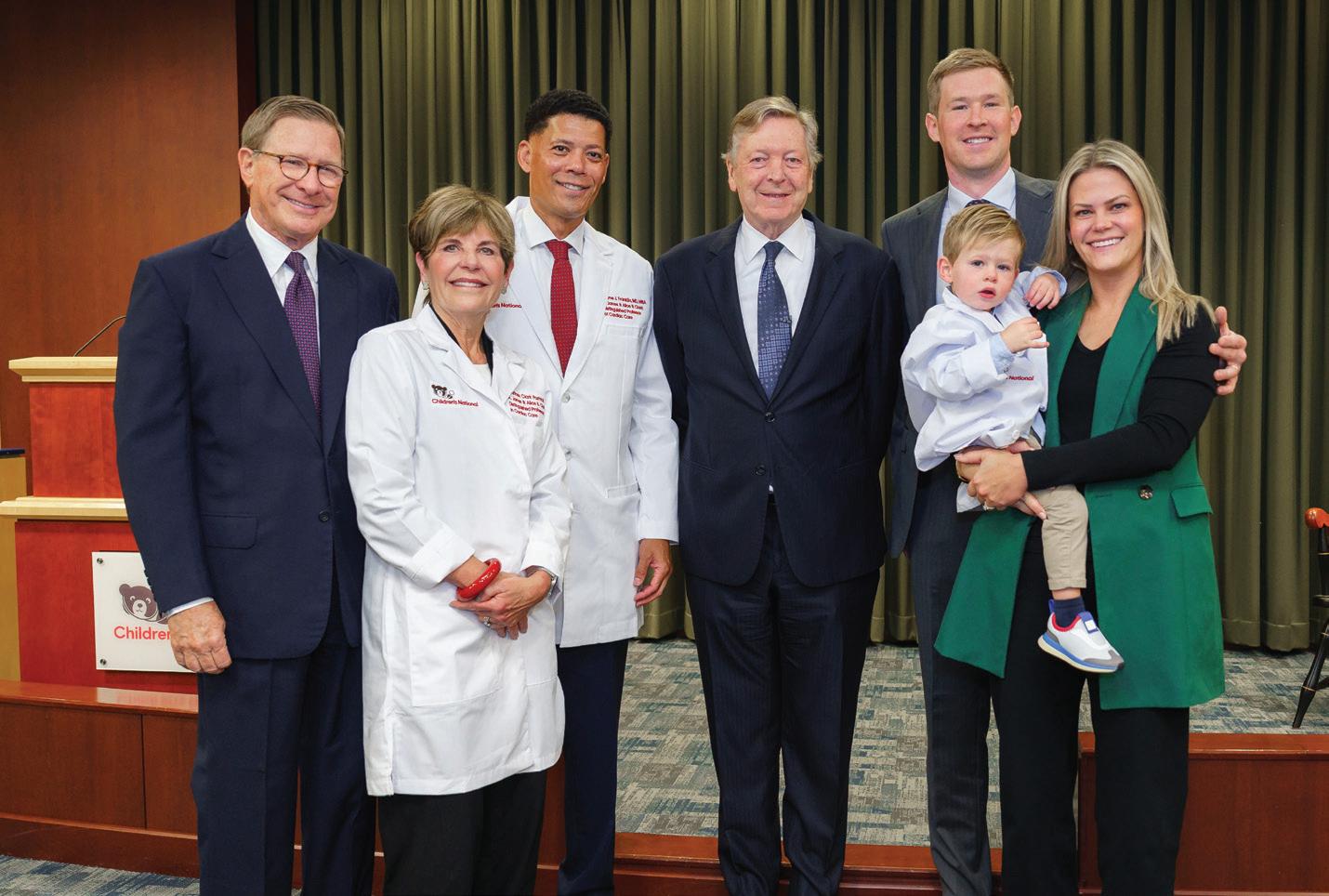
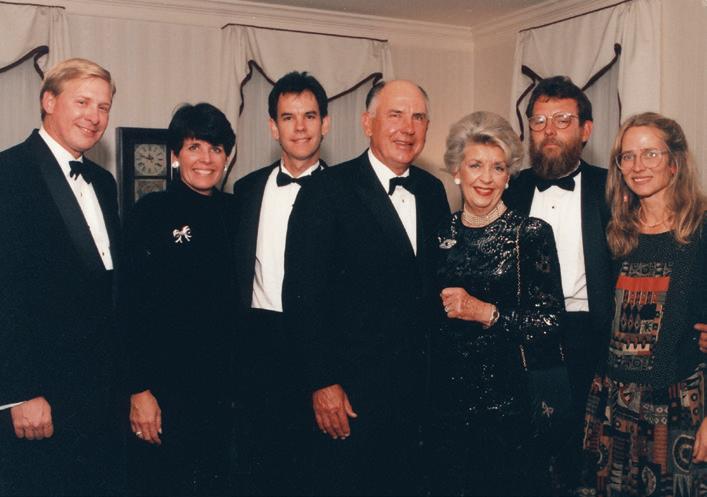
Lung Center, is the inaugural holder of the A. James & Alice B. Clark Distinguished Professorship in Cardiac Care. Dr. Franklin leads efforts to revolutionize the treatment of congenital heart disease, from fetal life through adulthood.
The gift helps to make exercise a core part of treatment for children with heart disease. Studies show that it can improve the health and quality of life for patients with a wide range of conditions. In 2025, the hospital recruited Pascal Amedro, MD, PhD, a world-renowned
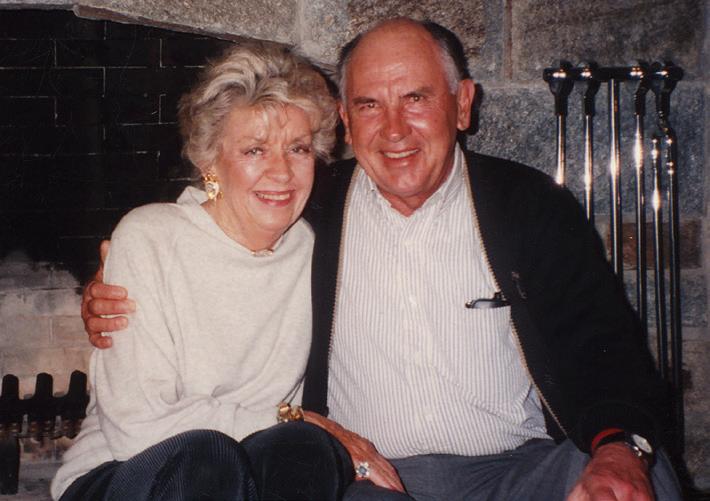
specialist, as the Dunn Family Professor of Cardiac Research. Dr. Amedro will lead a new rehabilitation program to improve care for chronic childhood conditions and diseases.
“The relationship between the Clark family, the Clark Foundation and Children’s National has been a true partnership,” says Del Guercio. “Our investments have led to many benefits for children and our community, but I believe their impact will be even greater in the future.”